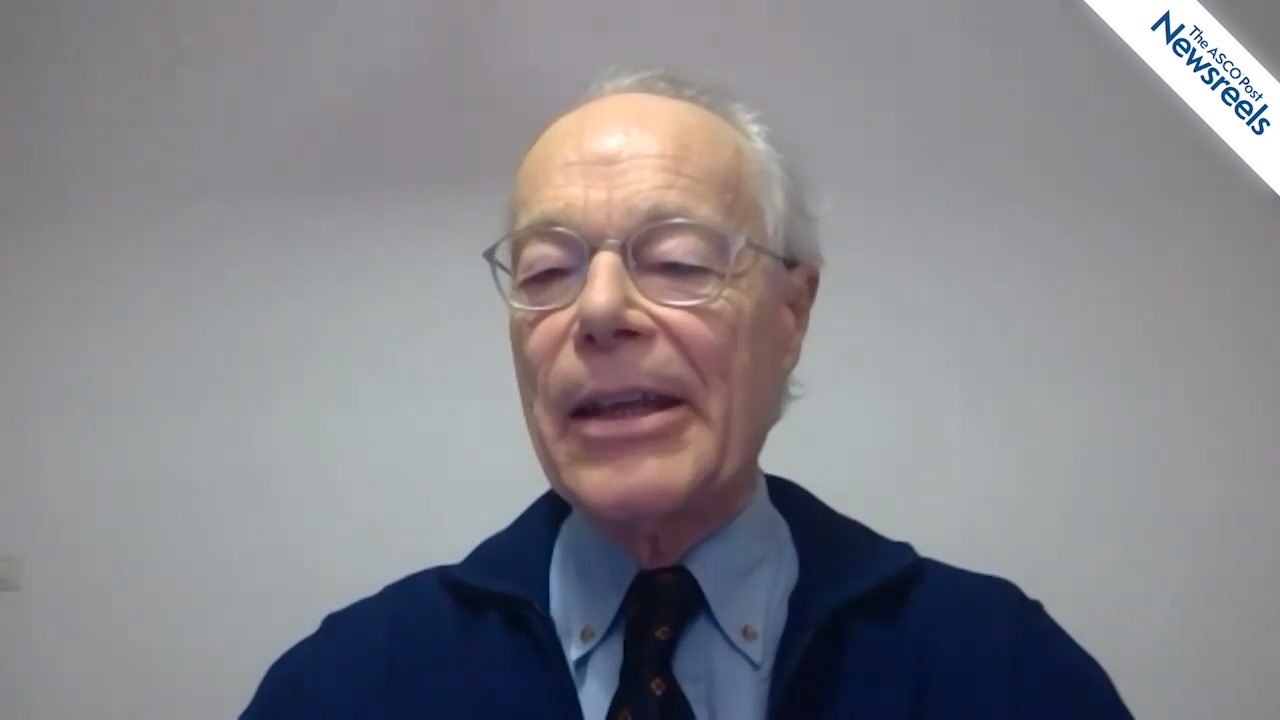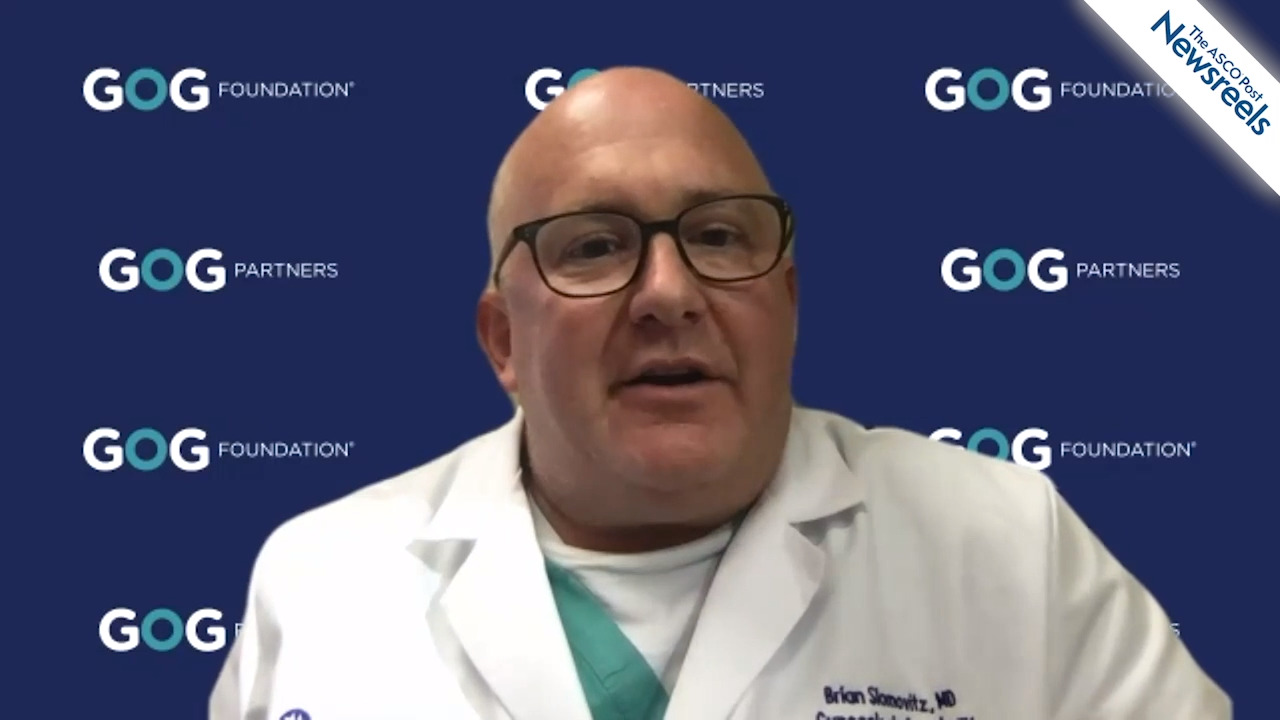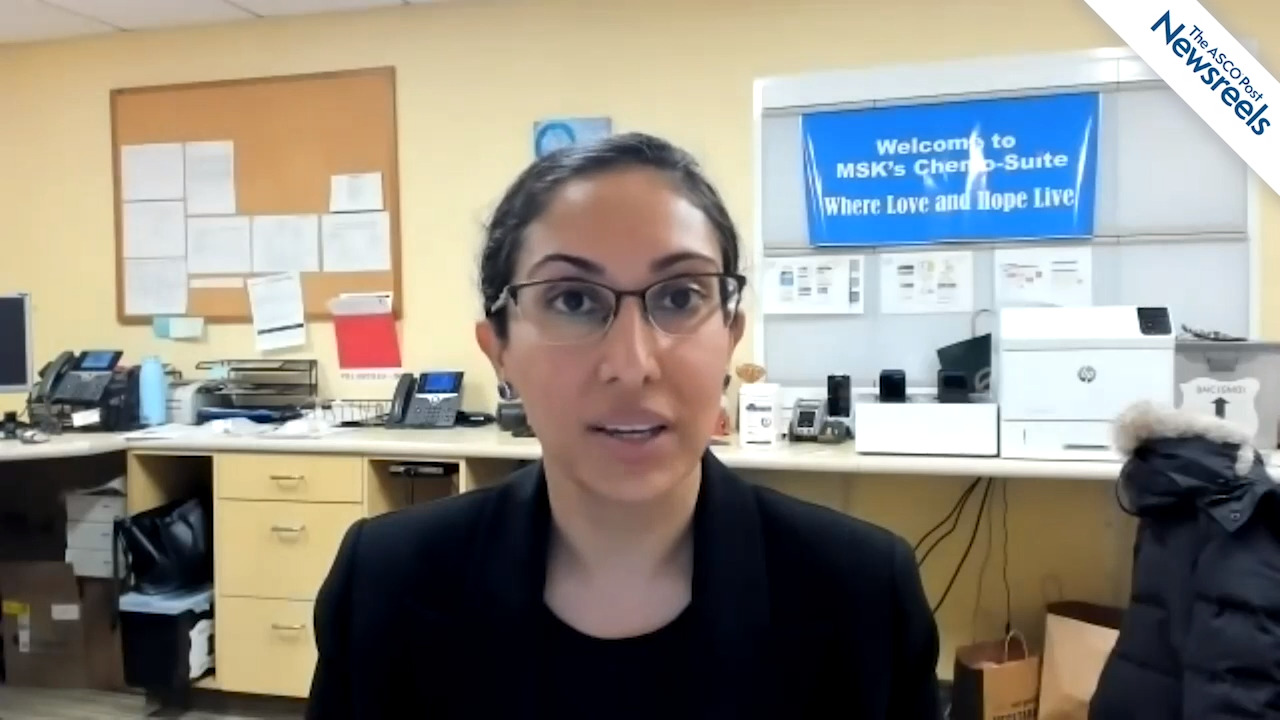William H. Bradley, MD, on Ovarian Cancer: 5-Year Follow-up on Maintenance Olaparib
SGO 2021 Virtual Annual Meeting on Womens Cancer
William H. Bradley, MD, of the Medical College of Wisconsin, discusses results from the SOLO-1 trial on maintenance olaparib after first-line platinum-based chemotherapy for patients with newly diagnosed advanced ovarian cancer and a BRCA mutation. Almost half of the patients treated with olaparib in the study were disease-free at 5 years, vs 20% of those treated with placebo (ID# 10224).
The ASCO Post Staff
Eric Pujade-Lauraine, MD, PhD, of Hôpital Hôtel-Dieu, discusses results from the PAOLA-1ENGOT-ov25 trial on the use of homologous recombination–repair mutation gene panels and whether they can predict the efficacy of olaparib plus bevacizumab in first-line maintenance therapy for patients with ovarian cancer (ID# 10224).
The ASCO Post Staff
Rebecca S. Kristeleit, MD, PhD, of the University College London and UCL Cancer Institute, discusses efficacy and safety results from the phase III ARIEL4 study, which showed that rucaparib improved progression-free survival vs standard-of-care chemotherapy in patients with BRCA-mutated, platinum-resistant, or platinum-sensitive relapsed ovarian cancer (ID #10191).
The ASCO Post Staff
Lauren Thomaier, MD, of the University of Minnesota, discusses the genetic variants found to be associated with an increase in chemotherapy-induced neuropathy symptoms in a cohort of gynecologic cancer survivors. Combining these variants with clinical characteristics may provide an important treatment tool (ID# 10253).
The ASCO Post Staff
Brian M. Slomovitz, MD, of Florida International University, describes how emphasizing diversity and shifting away from clinical trials at universities helped The GOG Foundation, Inc., increase patient accrual by 50% in 2020 (ID # 10215).
The ASCO Post Staff
Vicky Makker, MD, of Memorial Sloan Kettering Cancer Center, discusses phase III findings showing that lenvatinib plus pembrolizumab may improve overall and progression-free survival, as well as overall response rate, compared with treatment of physician’s choice for advanced endometrial cancer. These results were achieved regardless of mismatch repair status following platinum-based chemotherapy (ID #10191).





